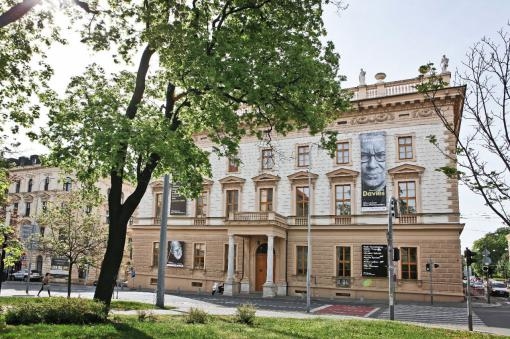A Century Later or How the Republic was Declared in Brno. An event being set up in cooperation between the Brno Philharmonic and the Theatre Goose on a String. On 29 October they will jointly celebrate the declaration of independence of the republic. The date is that of the official declaration of the republic in Brno, which took place with a delay of one day. The event will be accompanied by a theatrical tour of Besední dům.
“No, we didn’t make a mistake, the event will really be taking place on the twenty-ninth. Due to the general confusion and poor communications the news really arrived in Brno a day later. Few people know this. And in the same way few know that many of Brno’s people got to know about it thanks to a proclamation from the balcony of Besední dům,”stated the director of the Brno Philharmonic, Marie Kučerová.
It is for this reason that Besední dům is to be the venue for thee celebration, which can be divided into three parts: internal, outdoors and a get together of historians in the Café Praha in Brno. The occasion will be marked from the morning by events in Komenského náměstí.“Girls will be sewing flags with sewing machines from pieces of cloth there, and will then progressively install them under the roof of Besední dům. In the evening, when the main celebration begins, they should be hanging from the roof to the pavement,” revealed director Pavel Baďura. As he indicated it will mainly take place outside. Austrian gendarmes, choirs, horses, period costumes, youngsters … all will be there to hear the declaration of independence of the republic. “It will be announced from the balcony by the men of 29 October. And perhaps even Mahen will be there,” added Baďura.
The main event is preceded by a special theatrical tour of Besední dům. This gives people a chance to see backstage and the concert and look back to a time before the year 1918. “What was Besední dům like under Austria-Hungary? What role did it play and who went there, what was Brno like and how did it make its money? Our guides will tell you all this,” stated the tour director Jiří Honzírek. He added that for example Josef Krasoslav Chmelenský in his letter to F. L. Čelakovský writes: “I don’t really like the city of Brno, but more and more I enjoy the surroundings, which up until now I hadn’t seen. (…) It is really unpleasant to walk in the city due to the poor paving stones and the houses are dangerous with their wooden roofs. In Brno, even though almost everyone can speak both Czech and German, only German is spoken everywhere, and so far the ground has yet to be fully prepared for Czech. And what hurts most is that Brno’s people do not want Bohemians and look at them askance.” Special tours for groups of forty will start every quarter of an hour from 5 p.m., with the last starting at 6.15 p.m. Tickets can be bought in advance from the Philharmonic or online.
You can learn more about the origins of the republic in the Café Praha in Brno, where there will be a gathering of four specialists from the Department of History of the MU Faculty of Arts: Jiří Malíř, Libor Vykoupil, Jiří Němec and Tomáš Dvořák. “Besední dům, an important symbol of Czech national life in Brno, also played a significant role in the days during which the Czechoslovak state was born in 1918. It was there that on the evening and night of 28 October there was meeting of members of the national committee after they had heard through various channels about the events in Prague. Here the protagonists of the revolution agreed on the takeover of state power in Brno, which began the following day and during the ensuing events Besední dům was the venue for important meetings. The declaration of the state was announced in Brno through the Lidový noviny newspaper. The celebrations took place in several places that day in the centre of the city. The speeches from the balcony of Besední dům were then written into the records of the city as the symbolic moment of the declaration of a new state in Brno,” stated the historian Tomáš Dvořák. The meeting will take place at 5 p.m. and the entry fee for it is voluntary.













No comment added yet..